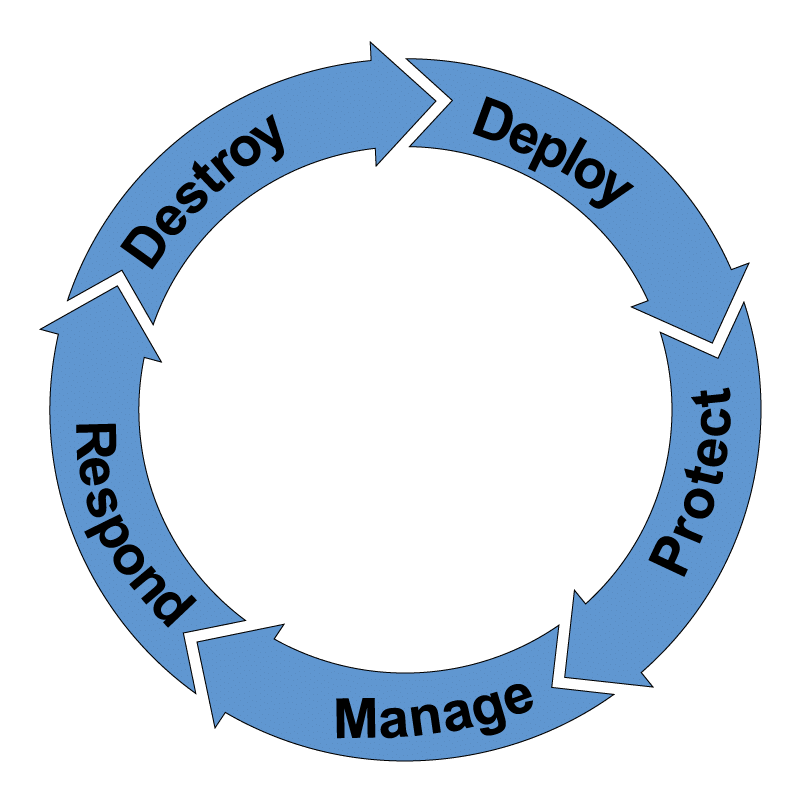From Ransomware to Deepfakes: The 7 Cyber Risks That Could Shut Down Your Business
 The dinosaurs never saw their end coming. Neither do businesses that underestimate today’s extinction-level cyber threats.
The dinosaurs never saw their end coming. Neither do businesses that underestimate today’s extinction-level cyber threats.
For small to mid-sized businesses (SMBs), the risk isn’t theoretical. From AI-powered ransomware to vendor-driven breaches, modern attacks can cripple operations, devastate finances, and permanently damage trust. What makes these threats so dangerous is that they’re evolving faster than traditional defenses can adapt.
The good news is that, with foresight, preparation, and the right Managed Security Service Provider (MSSP) partnership, extinction-level events can be prevented or at least contained before they spiral into catastrophe.
This article explores the seven extinction-level cyber threats SMB leaders must understand as they build cyber strategies for 2026.
1. AI-Powered Ransomware: Attacks at Machine Speed
Ransomware is no longer a crude tool. With artificial intelligence, attackers now:
- Scan networks for weak points in real time
- Personalize phishing at scale
- Lock down operations in hours, not weeks
Why leaders should care: Traditional defenses and human teams can’t match AI’s speed. An AI-driven ransomware campaign can encrypt entire infrastructures before detection, forcing SMBs into impossible choices between million-dollar ransoms and months of downtime.
Reclamere Insight: Our SOC360 service leverages AI-enhanced detection and real-time monitoring to counter AI-driven attacks before they escalate.
2. Advanced Persistent Threats (APTs): Silent, Patient, and Devastating
Unlike smash-and-grab attacks, APTs are about stealth and persistence. Nation-states and organized crime groups infiltrate networks and quietly monitor activity, sometimes for months, before stealing intellectual property, client data, or trade secrets.
Why leaders should care: APTs undermine long-term trust. By the time you notice, it may be too late – client data could be sold, competitors may already have your innovations, and your brand reputation could be permanently scarred.
Reclamere Insight: Through CSO360, we help leaders strengthen governance, risk, and compliance strategies to spot the signals of APTs early.
3. Supply Chain Attacks: One Vendor, Catastrophic Impact
Even if your defenses are strong, your vendors, partners, and software providers may be the weak link. Supply chain attacks exploit trust relationships – injecting malware or exploiting third-party vulnerabilities that ripple downstream to you.
Why leaders should care: 75% of government ransomware attacks already target state, local, tribal, or territorial entities. The lesson for SMBs? Your cyber resilience is only as strong as your ecosystem.
Reclamere Insight: SCR360 helps SMBs continuously assess vendor risk, enforce accountability, and reduce third-party exposure.
4. Data Breaches: When a Security Incident Becomes a Trust Crisis
Data breaches remain one of the most expensive and damaging events SMBs face. The average U.S. breach now costs $10.22 million per incident. Most start with something small (a weak password, a misplaced laptop, or a successful phishing attempt), but escalate quickly.
Why leaders should care: Beyond regulatory fines and operational disruption, breaches erode customer trust. 38% of banking customers would switch institutions after a breach – a trend mirrored in healthcare and accounting.
Reclamere Insight: Our CSO360 program helps leaders build strategic plans that prioritize both prevention and rapid recovery.
5. IoT Exploits: Invisible Entry Points
From smart printers to security cameras, Internet of Things (IoT) devices are everywhere, and often poorly secured. Default credentials, unpatched firmware, and limited visibility create shadow entry points for attackers.
Why leaders should care: Without IoT visibility, attackers can use a single compromised device as a foothold into your broader network.
Reclamere Insight: SOC360 provides continuous monitoring of IoT traffic and anomalies, helping to close these overlooked gaps.
6. Deepfakes & Social Engineering: Don’t Trust Your Eyes and Ears
Cybercriminals now weaponize AI-generated voices and videos to impersonate executives, employees, or partners. Imagine receiving a video call that looks and sounds like your CFO, but is actually an AI-crafted imposter authorizing a fraudulent wire transfer.
Why leaders should care: Deepfake scams erode trust in communication and bypass traditional employee awareness training. Policies must evolve so that a voice or video alone isn’t enough to authorize critical actions.
Reclamere Insight: SAT360 helps build cyber-aware cultures while reinforcing procedural safeguards against AI-enabled fraud.
7. Cloud Misconfigurations: The Cost of “Simple Mistakes”
The cloud delivers scalability and flexibility, but also creates risks if configured incorrectly. Overly broad permissions or unmonitored storage buckets can leave sensitive data exposed to anyone searching for it.
Why leaders should care: Cloud misconfigurations are among the most common causes of data exposure. Regulators and customers won’t accept “it was a mistake” as an excuse.
Reclamere Insight: Through CSO360, we guide organizations in performing regular cloud audits, implementing guardrails, and aligning with frameworks like ISO 27001 and NIST.
Survival Belongs to the Prepared
Extinction-level threats aren’t rare…they’re reality. The businesses that thrive are those that:
- Identify their most valuable assets
- Continuously monitor for anomalies
- Hold vendors accountable
- Invest in people and culture, not just tools
- Align cyber strategies with business goals
At Reclamere, we help SMB leaders move beyond reactive security. With our MSSP services (SOC360, CSO360, SCR360, DS360, and SAT360), we provide the cyber strategy, monitoring, and partnership required to survive and grow in 2026 and beyond.
Cyber threats don’t wait for your next budget cycle.
Evaluate your readiness today with the Cyber-Ready Scorecard – a free, expert-designed assessment that helps SMB leaders strengthen defenses before the next attack.








